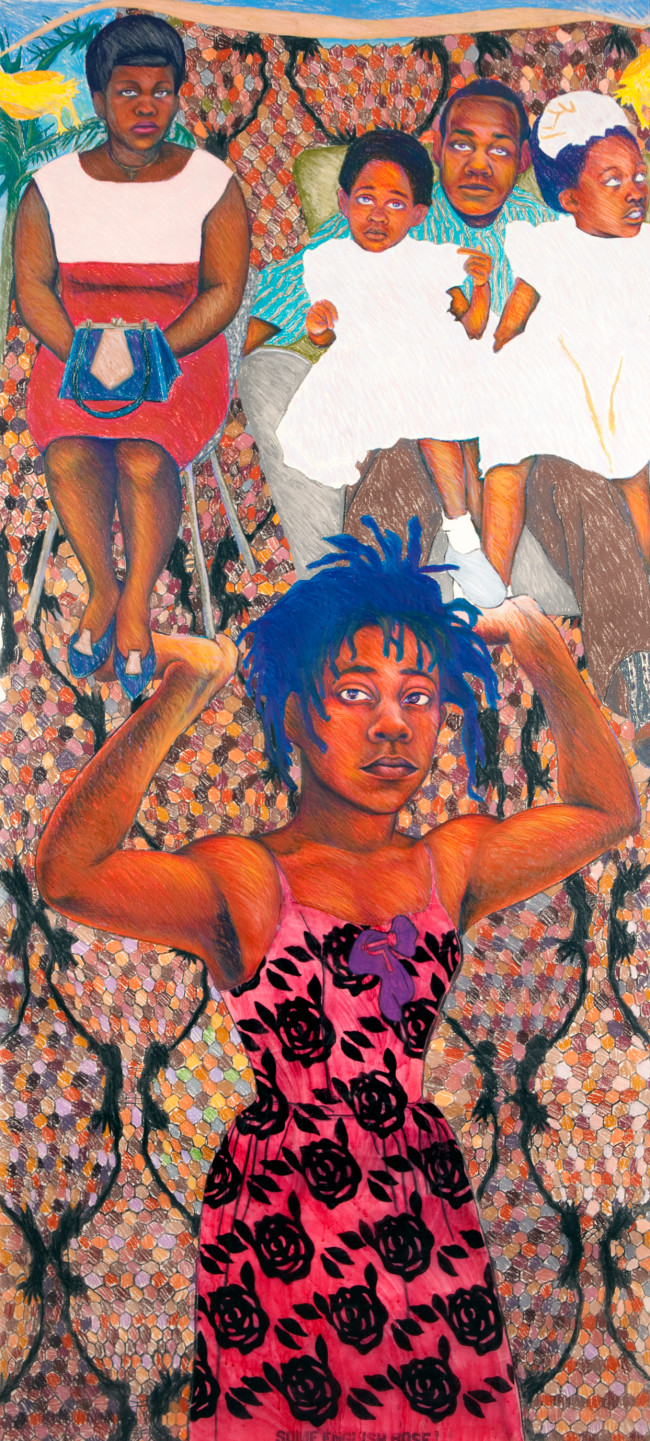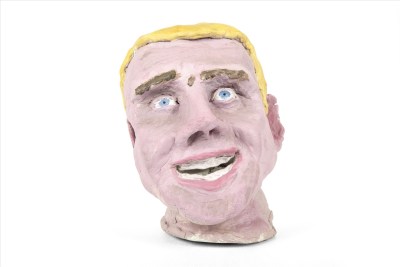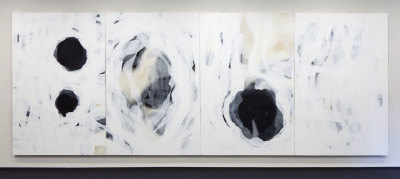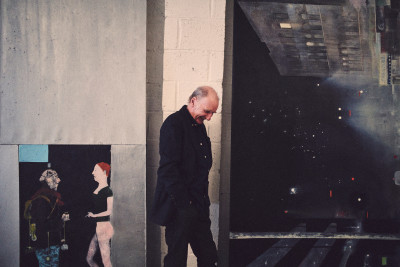Sonia Boyce: “If we can go to Mars, we can send more kids to art school”
Sonia Boyce: “If we can go to Mars, we can send more kids to art school”
By Anna Coatman
Published 28 July 2017
Currently preparing for her retrospective at Manchester Art Gallery, artist and educator Sonia Boyce is the latest to reflect on art, life and lessons learnt in our ‘As I see it’ series. She talks tuition fees, a love of Liberty and why we should all be prepared to dream of something different…
-
Sonia Boyce MBE is a British Afro-Caribbean artist and educator who lives and works in London. She began her career making large pastel drawings and photographic collages, exploring issues of race and gender in the media and everyday life. Since then, her practice has expanded to incorporate a wider variety of media, including performance, film, installation and sound. In 2007 Boyce was awarded an MBE for services to the arts, and in 2016 was elected a Royal Academician. Boyce is Professor of Black Art and Design at University of the Arts London.
I’ve lived in London nearly all my life.
When I went to art school in Stourbridge I realised that I was just a dot in the universe because there was so much space. I had these romantic ideas about living in the countryside; I hadn’t anticipated becoming agoraphobic. I remember struggling with landscape drawing on field trips. I would look around and think well where do I begin? I can read cities more easily.
-

Sonia Boyce RA, She moves in her way, 2017.
Performance work at the ICA..
-
It’s terrible to watch people watch your work.
It’s excruciating. My recent ICA show was a participatory performance piece and video installation and I only visited it once whilst it was on – but not to watch people, just to refresh my memory of the work.
I thought I’d be a dancer
when I was younger. I went to the Trinity Laban conservatoire aged about 17, and then thought, this is too much discipline for my body to handle. Other than that, I thought I might carry on working in the cheese department at British Home Stores. If I hadn’t done art, my ideal would have been to work at Liberty’s. I still want to work at Liberty but it’s probably too late to change career…
-
I thought I was going to be a dancer when I was younger. Other than that I thought I might carry on working in the cheese department at British Home Stores.
-
-

I started going to art school when I was 15.
I always used to draw in the margins of books, on any surface I could find, on tables, walls, on everything. My art teacher, Mrs Franklin, picked up on it and said: “You have to go to art school.” Art was a door that hadn’t been opened to me before. I grew up in a very working class community and had no idea about art school. Mrs Franklin wrote a letter to my mum asking if it would be possible for me to do life-drawing classes. I needed a letter to allow me into the class because the models were naked. So this is how I started.
I don’t make drawings anymore
People are often melancholic about that, but I was only making them for about three years during the 1980s. I remember distinctly that while I was making the pastel drawing, She ain’t holding them up, she’s holding on (Some English Rose) in 1986, I just knew it was the last of these kinds of works I was going to make. There was no rhyme or reason why I felt like this, but I just knew. In those early works I was always the central figure and I was addressing the audience, so the performative element has always been there in my work.
You could say I’m an artist with a suitcase.
There is this 19th-century idea of an artist in their studio that we’re unable to let go of. It’s true that for most artists I know, the studio is a space of production, but because I work with people I usually go to where those people are. I’m on the road all the time.
I worked with ukulele-playing skateboarders
for a recent piece at Eastside Projects in Birmingham. It was much more terrifying than it sounds: it was more aggressive, unreal and gladiatorial than I had anticipated. They were literally throwing themselves against the walls. The noise was quite incredible with the melancholic sound of these ukuleles being played at the same time.
I despair about how the government today
sees the education system as a business, a very pedestrian form of business. For me that is a recipe for becoming very provincial in one’s thinking. Having said that, people come along and they do extraordinary things despite the structure they are landed in.
Being political is about being prepared to imagine something different.
That is what we need. If we are unhappy with a scenario, what kind of other scenario might be bearable, if not really euphoric? Collectively we can think these things though – it’s not rocket science.
-
-
I tend to work in the twilight hours
because I’m trying to juggle academia with my practice. Now I’m working towards a show at Manchester Art Gallery. It’s a retrospective of my work from the mid 1990s onwards.
There is an untapped story about diversity in the UK
which has been happening very quietly, but which has not yet been publicly acknowledged. There are a great deal of works by African and Asian artists in public collections – even though they may only constitute a tiny, tiny percentage of the work collected overall. I’m leading on ’Black Artists and Modernism’, a three-year research project which has been funded by the Arts and Humanities Research Council. We’re trying to create a trail for future researchers who are interested in African and Asian artists and the contributions they have made not only to British art but also to the story of 20th-century art in general.
In a perverse way, it’s good that Brexit happened
because we were under an illusion. This stuff was always simmering but it was only at this flash point that it raised to the surface quite quickly. There’s no way to deal with an issue if you don’t know that it’s there.
-

Sonia Boyce RA, Paper Tiger (Installation view), 2016.

Sonia Boyce RA, Skateboard/Wallpaper/Performance, 2017.

Sonia Boyce RA, We move in her way at the ICA, 2017.

Sonia Boyce RA, We Move In Her Way: Participants 2, 2017.
-
The increase in tuition fees comes from an ideological position
that wants to make education elitist again. But in some ways that move is too late, because there are still people around who know what it was like when education was free. The opening of that door has filtered down through the generations. It’s hard to shut that door now.
I have to try and hold my tongue with my kids
and let them do their own thing. It can be a bit of a burden to them having parents that are known in the arts.
Human beings are inventive.
If we can go to Mars, we can send more kids to art school.
See Sonia Boyce’s work in the Summer Exhibition 2017.
Anna Coatman is Assistant Editor at RA Magazine.









